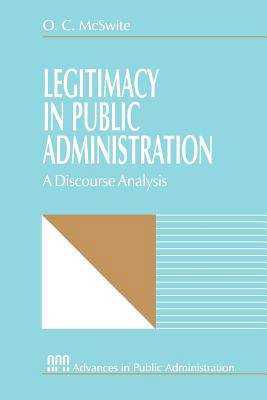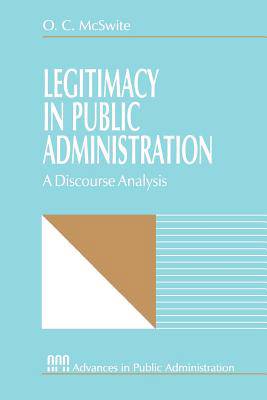
- Afhalen na 1 uur in een winkel met voorraad
- Gratis thuislevering in België vanaf € 30
- Ruim aanbod met 7 miljoen producten
- Afhalen na 1 uur in een winkel met voorraad
- Gratis thuislevering in België vanaf € 30
- Ruim aanbod met 7 miljoen producten
Zoeken
€ 177,45
+ 354 punten
Uitvoering
Omschrijving
In this "postmodern, end-of-the-century" moment, the question of what role public administration can legitimately play in a democratic society has deepened and taken on increased urgency. At the same time the movement toward global marketization has gained enormous momentum, traditional prejudices and racial and ethnic violence have appeared with a renewed virulence, presenting unprecedented challenges to democratic governments. Legitimacy in Public Administration reveals how the issue of administrative legitimacy is directly implicated, indeed central, to this broader issue. It argues that legitimacy hinges at the generic level on the question of alterityùhow to regard and relate to "different others." This book reviews the history of the legitimacy issue in the literature of American public administration with the purpose of demonstrating that this discourse has been distorted by an underlying and undisclosed commitment to an elitist "Man of Reason" model of the public administratorÆs role. Current attempts to reformulate administration to meet the challenge of new conditions will fail, the author argues, because they have not escaped the grip of this implicit distortion. Legitimacy in Public Administration includes a challenging concluding chapter that uses insights from gender theory and demonstrates the connection between the legitimacy question and the critical problem of alterity. The author also offers a new way to fundamentally reframe the legitimacy question, so as not only to help the field of public administration resolve it, but to show how this resolution can create a new understanding of the problem of racial and ethnic prejudice.
Specificaties
Betrokkenen
- Auteur(s):
- Uitgeverij:
Inhoud
- Aantal bladzijden:
- 320
- Taal:
- Engels
- Reeks:
- Reeksnummer:
- nr. 4
Eigenschappen
- Productcode (EAN):
- 9780761902744
- Verschijningsdatum:
- 1/07/1997
- Uitvoering:
- Paperback
- Formaat:
- Trade paperback (VS)
- Afmetingen:
- 153 mm x 229 mm
- Gewicht:
- 521 g

Alleen bij Standaard Boekhandel
+ 354 punten op je klantenkaart van Standaard Boekhandel
Beoordelingen
We publiceren alleen reviews die voldoen aan de voorwaarden voor reviews. Bekijk onze voorwaarden voor reviews.







